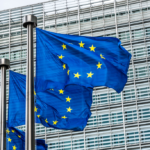The European Commission recently proposed amendments to the Corporate Sustainability Due Diligence Directive (CSDDD), postponing implementation to July 2028 while simplifying certain requirements. Despite these changes, companies need robust compliance strategies. This article includes feedback Ksapa has been inquired to provide to EU MPs sharing neutral practitioner expertise to contribute advancing smart regulation dynamics in the space.
Streamlined Due Diligence Approach
The amendments reduce the burden on indirect business partners, requiring in-depth assessments only when plausible information suggests adverse impacts. Companies can now extend periodic assessments from annual to 5-year intervals. Ksapa’s proprietary assessment tools aligned with international standards help companies establish efficient monitoring systems that remain responsive while meeting these new timeframes in times of business uncertainty.
SME Protection Measures
The revised CSDDD limits information requests from larger companies to their SME partners. Ksapa’s simplified due diligence methodology enables SMEs to meet compliance requirements without excessive administrative burden, while helping larger companies gather necessary data through targeted questionnaires and streamlined processes.
Civil Liability Changes
The proposal defers to national civil liability regimes by removing EU-harmonized conditions. Ksapa’s legal experts provide country-specific compliance guidance, helping multinational companies navigate varied regulatory landscapes and minimize legal exposure through tailored risk mitigation strategies.
Ksapa’s Contribution to CSDDD European Parliament Feedback Inquiry Process – March 2024
Ksapa has been inquired to provide feebdack in view of its extensive expertise on human rights and implementation of programs across the globe. Here are the key points shared during this process. Regarding CSDDD, we advocate for maintaining robust requirements aligned with international standards, while allowing methodological flexibility for effective implementation adapted to companies’ economic realities.
- Local content and value creation in export countries: Encourage companies to demonstrate and enhance their contribution to develop local economies in their supply chains. If CSDDD is only a risk based approach with no value for export countries, there is no interest for them to support. If instead, CSDDD encourages through mitigation plans companies to address issues the like poverty in export countries, then CSDDD will become a strategic tool encouraging non EU governments in Asia, Africa and Latin America to strengthen business relations with EU companies. This can be a powerful geopolitical vehicle in today’s context. We have several examples where EU companies can invest 1 euro and generate 25 euros or local value in non EU countries while strengthening their strategic import in compliance with CSDDD requirements. This builds win / win models for EU business AND EU geopolitical priorities
- Respect for International Standards: Maintain explicit references to the UNGPs and OECD due diligence principles, leaving companies responsible for explaining how they calibrate and conduct their due diligence according to these recognized frameworks. Strengthen the link between 1. Free interpretation by eligible companies of the need to set up a due diligence process in line with international standards above clarified, and 2. Strengthening the legal implications in the event of default. In this way, it will be up to companies to define an approach that respects the spirit of the standards, rather than complaining that the process is too rigid. It is then up to the courts, if need be, to assess whether the concept of “reasonable due diligence” is correctly applied on a case-by-case basis.
- Salience-Based Analysis: Reject limitation to tier 1 and favor an approach based on risk severity across the entire value chain, from consumer to first mile of production, leveraging existing sectoral guidance to identify default risks.
- Flexibility in Application Thresholds: Avoid arbitrary criteria such as the 500-employee limit and promote methodological transparency in defining relevant thresholds, thereby enabling assessment of reasonable effort in case of legal disputes.
- Explicit Climate Alignment: Preserve strong language linking CSDDD to the Paris Agreement and requiring a climate approach compatible with a “below 2 degrees” trajectory, despite resistance from certain member states.
Conclusion
While the CSDDD amendments provide relief to businesses, they maintain the directive’s core objectives of preventing adverse human rights and environmental impacts. Ksapa’s cross-functional expertise in human rights, sustainability compliance, and risk management helps companies transform compliance necessities into competitive advantages. Our sectoral expertise and digital solutions support businesses of all sizes in creating value-driven approaches to human rights due diligence that align with both regulatory requirements and stakeholder expectations.
Président et Cofondateur. Auteur de différents ouvrages sur les questions de RSE et développement durable. Expert international reconnu, Farid Baddache travaille à l’intégration des questions de droits de l’Homme et de climat comme leviers de résilience et de compétitivité des entreprises. Restez connectés avec Farid Baddache sur Twitter @Fbaddache.






























































































































































